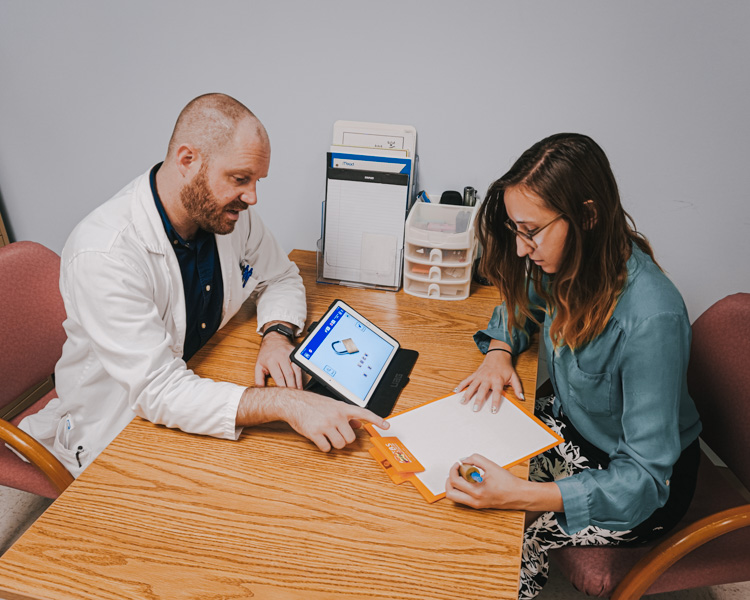Speech Therapy at PT Solutions
At PT Solutions, our Speech-Language Pathologists (SLP) help patients of all ages with various speech and communication challenges. From children learning to talk to adults whose ability to speak or swallow have been impacted by a stroke, our SLP’s provide comprehensive treatment plans designed to meet each individual’s goals.
As speech and communication disorders vary in complexity from case to case, finding the right answers to your questions can be daunting, leading to further stress and frustration. Our SLP’s, with their knowledge and expertise, will help you understand the condition and provide the guidance you need in between treatments.

